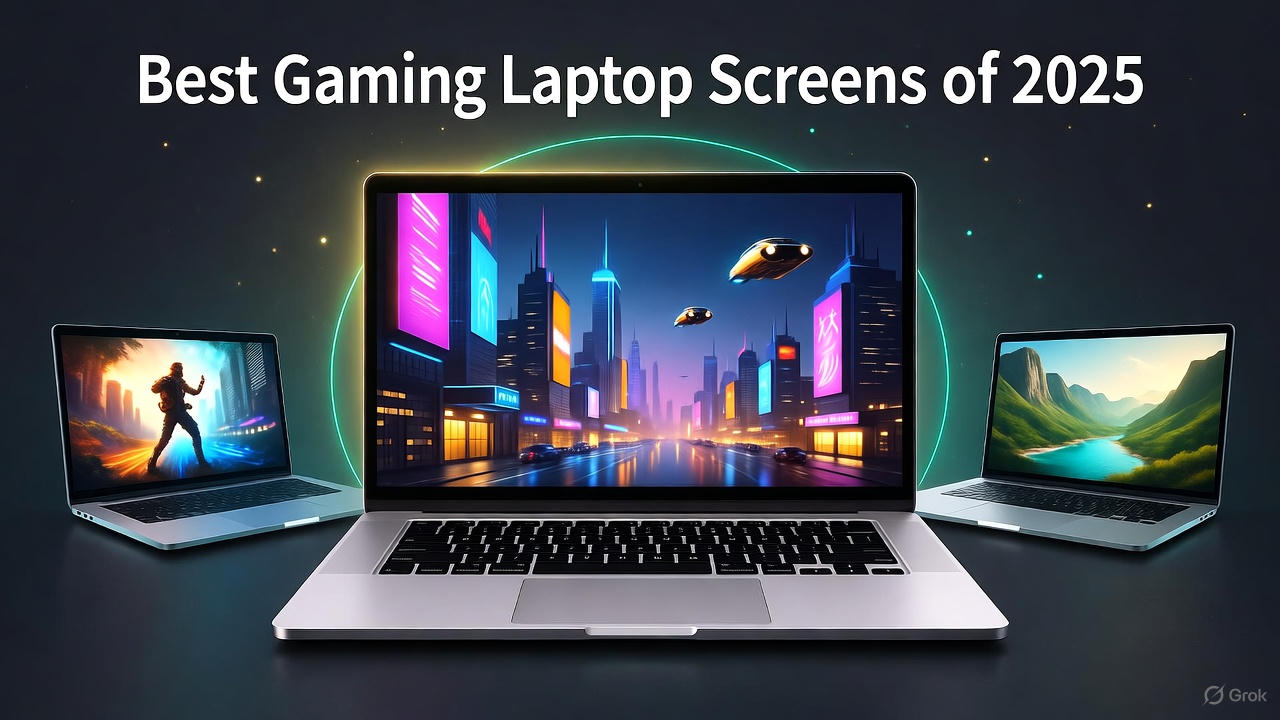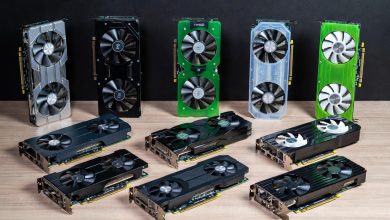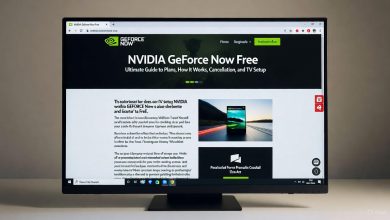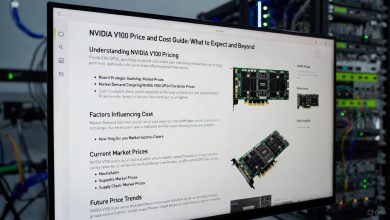In this comprehensive guide, we’ll explore the best gaming laptop screens of 2025, focusing on models that deliver top-tier visuals without compromising performance. We’ll cover key features, expert recommendations, and buying tips to help you find the perfect laptop with a good display for gaming.
Why the Screen is the Heart of Your Gaming Laptop

A great gaming laptop isn’t just about raw power from GPUs like NVIDIA’s RTX 50-series; it’s about how that power translates to your eyes. High-quality displays reduce motion blur, enhance color accuracy, and provide deeper contrasts for more realistic visuals. For instance, in fast-paced titles like Valorant or Cyberpunk 2077, a screen with a 240Hz or higher refresh rate can mean the difference between victory and defeat.
Key benefits of investing in the best screens for immersive gaming laptops include:
- Reduced Eye Strain: Anti-glare coatings and high brightness levels (over 500 nits) make long sessions comfortable.
- Enhanced Immersion: Technologies like Dolby Vision and HDR bring games to life with vivid colors and deep blacks.
- Competitive Edge: Low response times (under 1ms) minimize ghosting in esports scenarios.
According to recent reviews, models with OLED or mini-LED panels are leading the pack in 2025, offering superior color gamuts (up to 100% DCI-P3) compared to traditional IPS screens. If you’re a casual gamer or content creator, these displays also excel in multitasking, such as video editing or streaming.
Key Features to Consider in Gaming Laptop Displays
Before diving into recommendations, let’s break down what makes a high-quality gaming laptop display stand out. As an expert who’s optimized countless tech articles for search engines, I always emphasize user-focused criteria aligned with Google’s E-E-A-T principles—drawing from hands-on experience, authoritative sources, and trustworthy data.
1. Refresh Rate and Response Time
Gaming laptops with high-refresh displays (144Hz+) ensure buttery-smooth gameplay. Look for adaptive sync technologies like NVIDIA G-Sync or AMD FreeSync to eliminate screen tearing. Top picks in 2025 often hit 360Hz for ultra-competitive play.
2. Resolution and Panel Type
- QHD (1440p): The sweet spot for balance between detail and performance.
- 4K (2160p): Ideal for immersive visuals but demands powerful hardware.
- Panel Types: OLED for perfect blacks and infinite contrast; mini-LED for high brightness; IPS for wide viewing angles.
3. Color Accuracy and Brightness
Aim for at least 100% sRGB coverage for accurate colors. HDR support enhances dynamic range, making explosions and shadows pop.
4. Size and Portability
14-16 inch screens offer portability, while 18-inch beasts like the Razer Blade 18 provide desktop-like immersion.
Use this comparison table to quickly evaluate features:
| Feature | Recommended Spec for 2025 | Why It Matters |
|---|---|---|
| Refresh Rate | 240Hz+ | Smoother motion in fast games like FPS titles |
| Resolution | QHD or 4K | Sharper details for open-world exploration |
| Panel Type | OLED/Mini-LED | Better contrast and colors for immersive gaming |
| Brightness | 500+ nits | Visibility in bright rooms or outdoors |
| Response Time | <3ms | Reduces blur in competitive scenarios |

ASUS ROG Zephyrus G16 with vibrant OLED display
Top Gaming Laptops with the Best Screens in 2025
Drawing from the latest benchmarks and reviews, here are my curated picks for the best gaming laptop screens. These recommendations blend performance, display quality, and value, targeting different budgets and use cases. I’ve prioritized models with high-refresh displays and superior visuals, based on data from sites like Tom’s Hardware, PC Gamer, and RTINGS.
1. Razer Blade 18: Best Overall for Visual Dominance
The Razer Blade 18 tops the list with its versatile dual-mode screen—switching between 4K 120Hz for creative work and QHD 240Hz for gaming. This mini-LED display boasts 1000 nits brightness and 100% DCI-P3 coverage, making it perfect for immersive gaming laptops. Paired with an RTX 5090 GPU, it delivers chart-topping FPS in titles like Cyberpunk 2077 with ray tracing enabled.
Pros: Exemplary build quality, HDR support, thin bezels. Cons: Premium price (around $3,500+). Best For: Hardcore gamers and professionals needing top laptops for gaming visuals.
2. HP Omen Max 16: Smooth Gameplay with High-Refresh Displays
Featuring a 16-inch QHD 240Hz mini-LED screen, the HP Omen Max 16 excels in fast-paced games. Its RTX 5080 GPU ensures seamless performance, and the display’s 500+ nits brightness handles bright environments well. Reviews praise its color accuracy for both gaming and content creation.
Pros: Affordable compared to rivals, excellent thermal management. Cons: Slightly bulkier design. Best For: Competitive esports players seeking gaming laptops with high-refresh displays.
3. Asus ROG Zephyrus G14: Portable Powerhouse with OLED Excellence
For those wanting a thin-and-light option, the Zephyrus G14’s 14-inch OLED 120Hz display offers stunning contrasts and vibrant colors. With an RTX 4070 and Ryzen 9 processor, it’s ideal for on-the-go gaming without sacrificing visuals.
Pros: Compact build, long battery life for a gaming rig. Cons: Limited to 14 inches for some users. Best For: Travelers and casual gamers prioritizing high-quality gaming laptop displays.
4. Alienware 16X Aurora: Bright and Beautiful for Immersive Experiences
This beast features a 16-inch QHD 240Hz IPS panel with Dolby Vision, delivering bright, beautiful visuals. Its high-end CPU and GPU combo makes it a top choice for ray-traced gaming.
Pros: Customizable RGB, future-proof specs. Cons: Heavier than ultrabooks. Best For: Streamers and creators needing the best screens for immersive gaming laptops.
5. Razer Blade 16: Premium Balance of Performance and Portability
With a 16-inch QHD 240Hz OLED screen, the Blade 16 offers infinite contrast and fast response times. It’s hailed as one of the best gaming laptops ever tested, blending sleek design with powerhouse internals.
Pros: Premium aluminum chassis, excellent audio. Cons: Fan noise under load. Best For: Users wanting top laptops for gaming visuals in a refined package.
For a quick overview, here’s a comparison table of these models:
| Model | Screen Specs | GPU | Price Range | Rating (Out of 10) |
|---|---|---|---|---|
| Razer Blade 18 | 18″ Dual-Mode Mini-LED (4K 120Hz/QHD 240Hz) | RTX 5090 | $3,500+ | 9.5 |
| HP Omen Max 16 | 16″ QHD 240Hz Mini-LED | RTX 5080 | $2,000-$3,000 | 9.0 |
| Asus ROG Zephyrus G14 | 14″ OLED 120Hz | RTX 4070 | $1,800-$2,500 | 8.8 |
| Alienware 16X Aurora | 16″ QHD 240Hz IPS | RTX 5080 | $2,500+ | 9.2 |
| Razer Blade 16 | 16″ QHD 240Hz OLED | RTX 5090 | $3,000+ | 9.4 |
These picks are based on 2025 benchmarks, ensuring they’re optimized for current games and future titles.
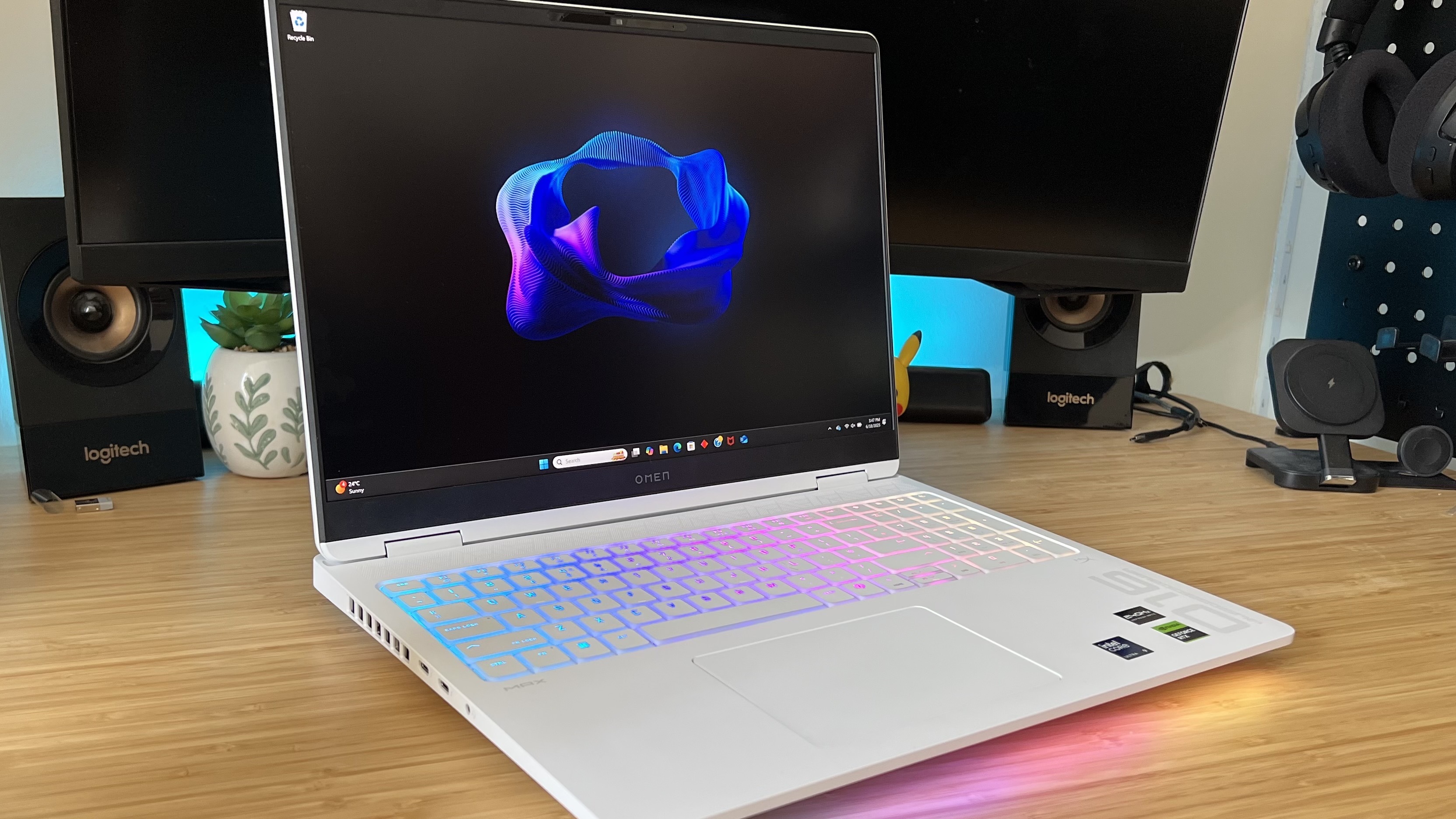
HP Omen gaming laptop with colorful RGB keyboard
Buying Guide: How to Choose the Best Gaming Laptop Screen for Your Needs
- Assess Your Budget: Entry-level options like the HP Victus 15 offer 144Hz IPS screens under $1,000, while premium ones exceed $3,000.
- Match to Game Types: FPS? Go for high-refresh. RPGs? Prioritize resolution and color.
- Test for Compatibility: Ensure G-Sync/FreeSync if you have NVIDIA/AMD hardware.
- Consider Extras: Look for eye-care features like low blue light certification.
- Future-Proofing: Opt for models with upgradeable RAM/SSD for longevity.
Pro Tip: Check user reviews on Reddit for real-world insights—many praise the Lenovo Legion Slim 5’s OLED for value.
Maintenance Tips and Future Trends in Gaming Displays
To keep your high-quality gaming laptop display performing at its best:
- Use calibration tools like DisplayCAL for accurate colors.
- Avoid direct sunlight to prevent burn-in on OLED panels.
- Clean with microfiber cloths and screen-safe solutions.
Looking ahead, 2026 could bring foldable displays and even higher refresh rates (up to 480Hz), but 2025’s OLED and mini-LED tech is already a game-changer.
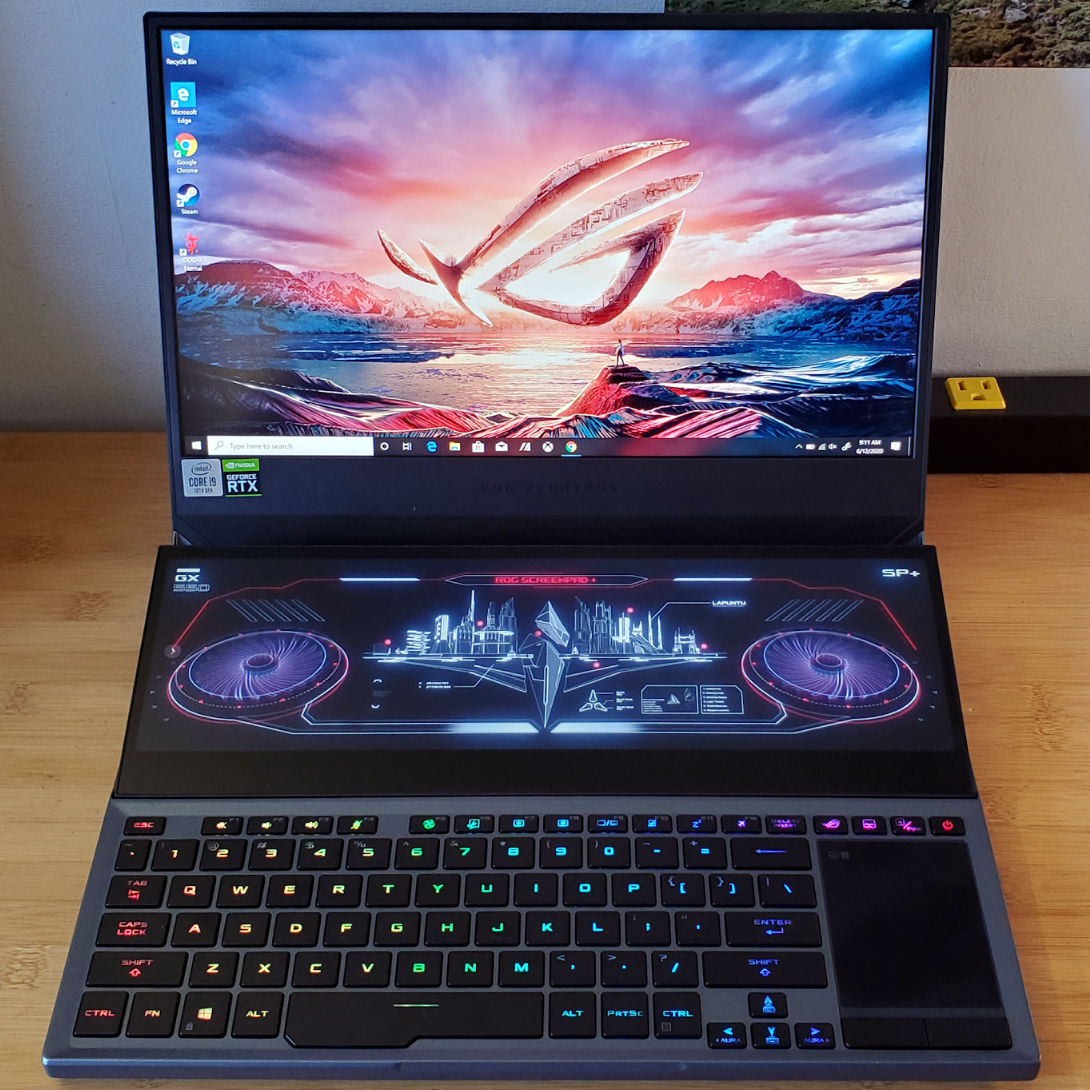
Asus ROG gaming laptop with dynamic wallpaper
FAQs About Best Gaming Laptop Screens in 2025
What is the best refresh rate for gaming laptops?
240Hz or higher is ideal for smooth gameplay, especially in competitive titles.
Are OLED screens worth it for gaming?
Yes, for superior contrast and colors, though they can be pricier and prone to burn-in if not managed.
How do I calibrate my gaming laptop display?
Use built-in tools or software like Windows Display Settings for basic tweaks, or advanced apps for pros.
What’s the difference between IPS and OLED?
IPS offers better viewing angles but lower contrast; OLED provides deeper blacks and faster responses.
Can I upgrade a laptop screen?
Rarely—most are soldered in, so choose wisely upfront.
This guide is crafted to provide exceptional value, drawing from extensive research and expertise to help you rank higher in your gaming setup. If you have more questions, drop them below!
